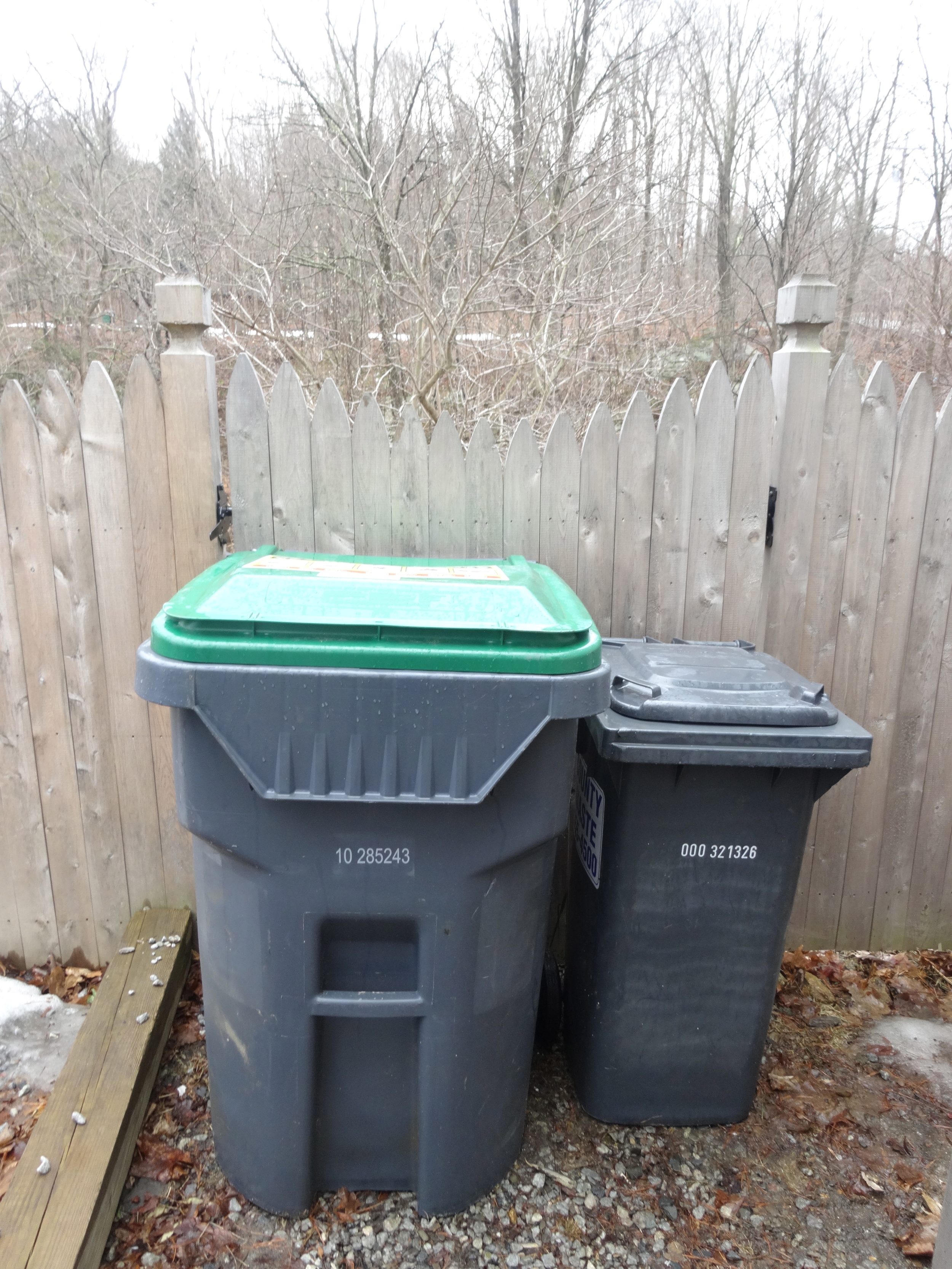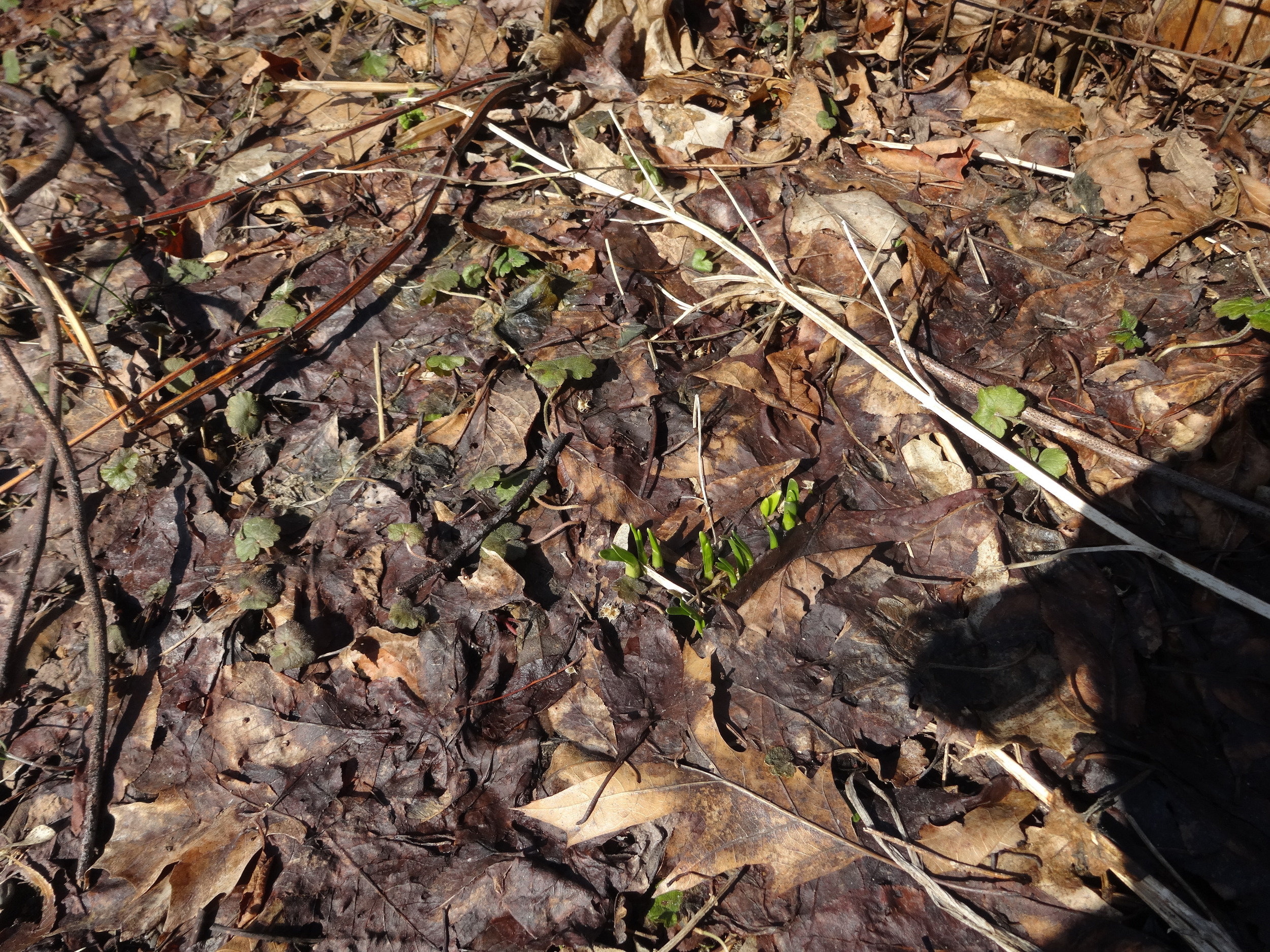Actually, I should ask "How big is your recycling can?" I am hoping your recycling can is bigger than your garbage can. If so, you are on the right track. If not, there is a lot you can do to reverse that. It is insane how much household waste we generate (and which has to be disposed of somehow). In 2012 in the US we produced close to 251 million tons of garbage or 4.38 pounds per person per day!!! That is 17.52 pounds per day for a family of four, or almost 6400 pounds per year!!!! Holy mackerel. And consider this: household garbage only accounts for about 2% of all garbage generated, since there is also industrial, construction and commercial garbage.
No wonder we are collectively beginning to wake up to the need to generate less garbage, recycle more, consume less, make smaller packaging, and compost more.
 At our house we have the smallest garbage can available, a 35 gallon can, while our recycling can is huge, it takes 95 gallons. I am a fervent recycler, as well as bottle (to the store to get my 5 cents back) and egg carton (I get my eggs from a farm) and plastic bag returner (to the supermarket collection bin for all sorts of plastic bags I somehow ended up with). And even though I have temporarily stopped composting, we usually only generate about one full garbage bag (made of recyclable plastic) per week (sometimes two) for our family of four (and about half of that is produce and other compostable stuff). Everything else gets recycled.
At our house we have the smallest garbage can available, a 35 gallon can, while our recycling can is huge, it takes 95 gallons. I am a fervent recycler, as well as bottle (to the store to get my 5 cents back) and egg carton (I get my eggs from a farm) and plastic bag returner (to the supermarket collection bin for all sorts of plastic bags I somehow ended up with). And even though I have temporarily stopped composting, we usually only generate about one full garbage bag (made of recyclable plastic) per week (sometimes two) for our family of four (and about half of that is produce and other compostable stuff). Everything else gets recycled.
Moreover, recycling services are for free (or rather paid through your taxes), while you pay for your garbage pick-up by can size directly out of your pocket - the smaller your garbage can the less you pay. And if you have a garden and can compost you'll end up with even less garbage.
So you can do something good for the environment and save money on top of that (although this goes beyond the mere money question since we pay a huge environmental price for every bit of irresponsibility). Also refer to an earlier blog post about what else you can do.







